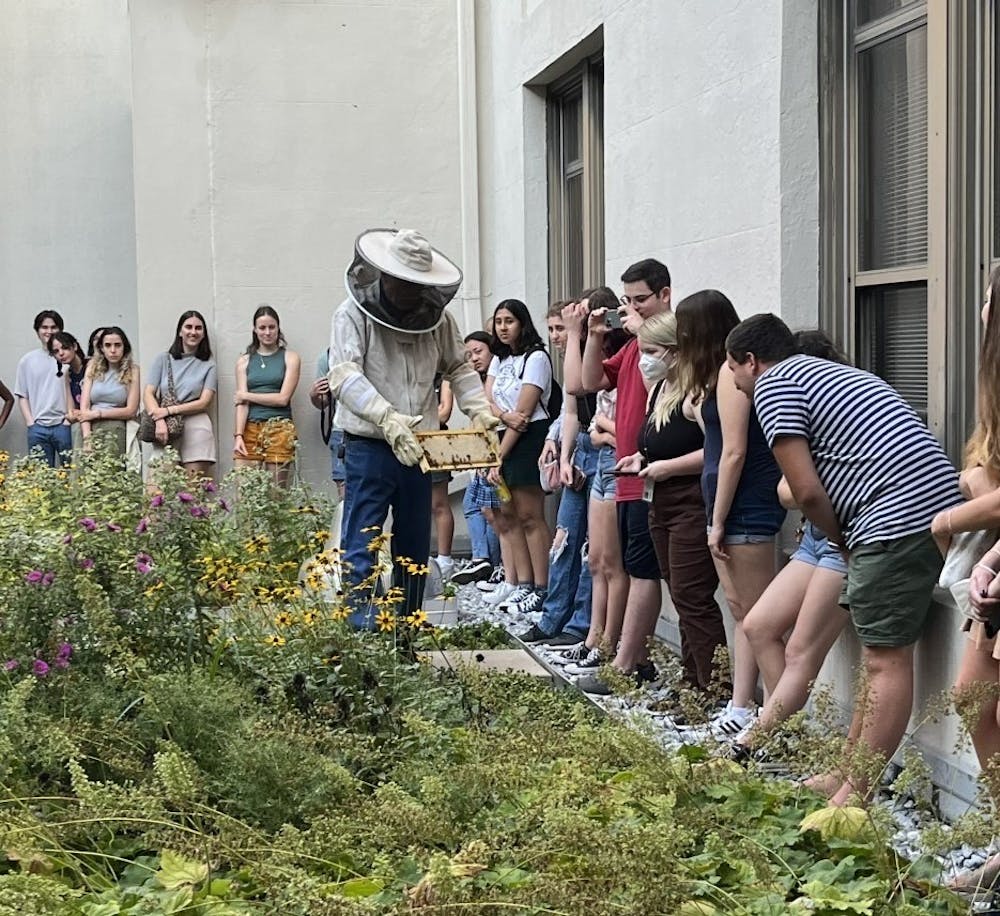Students came together to celebrate Rosh Hashana, one of the holiest days in Judaism, with events and services hosted by Hillel between Sept. 19 and 27.
The event program consisted of a range of activities and traditions designed to help ring in the Jewish new year, from discussions about the importance of Rosh Hashana to prayer services in the Kay Spiritual Life Center. Participating students reflected on the last 12 months and considered how they want to change going forward.
“It’s a moment to reflect on who you’ve been in the past year and who you could be in the next, and make sure that you are taking the steps or understand the path to get to that,” said Lane Schnell, a sophomore in the College of Arts and Sciences and member of Hillel.
Rosh Hashana is the beginning of the Jewish High Holy Days that starts on the first day of Tishrei, the seventh month of the Jewish calendar. The holiday’s history can be traced back to the sixth century B.C. and typically features a two-day festival marking the beginning of humanity.
Preparations for AU Hillel’s celebration of the High Holidays begin months in advance, according to Jason Benkendorf, AU Hillel’s executive director. He said discussions for this year’s festivities started in March and involved working with students to create the most meaningful ways to celebrate.
These discussions are responsible for activities including the beehive tour and honey tasting event, which have been held in partnership with the AU Beekeeping Society the last two years.
“Apples and honey are traditional for Rosh Hashana,” said Benkendorf. “We eat apples and honey to connect us to the natural world ... and as a symbol for the sweetness that we hope will characterize the new year.”
Benkendorf also talked about the Sept. 28 “Tashlich on the Quad.” Tashlich, which translates to “casting off,” is a ritual in which participants can metaphorically cast aside their burdens from the year by throwing breadcrumbs into flowing water. For their version of the ceremony, Hillel used a small inflatable pool and dissolvable paper.
“While it wasn’t the most traditional way of conducting Tashlich . . . I think there was a real power in watching the paper dissolve and even watching the ink separate from the paper,” he said.
Rhys Dillingham, a freshman in …, said he felt more present and “in the moment” after completing the Tashlich.
“It gave me kind of a comfort letting go of things and bringing new things into my life, and now I’m able just to be here and now,” Dillingham said.
Sam Scafidi, a sophomore in the School of Public Affairs and intern with First Year Students of Hillel, said he was hoping to become closer to the Hillel community this Rosh Hashana, something he felt during the prayer services.
“I really appreciated how communal the services were,” Scaffidi said. “People were encouraged to sing along and to all participate together. It was so great to see everyone that I have gotten to know at Hillel ... and just be able to have a nice time.”
Benkendorf said bringing people together across multiple cultural and religious backgrounds is one of Hillel’s main goals during holidays like Rosh Hashana.
“At Hillel, we see supporting the Jewish community in the context of a broader multicultural community as a real opportunity and a real blessing,” he said. “We have this wonderful opportunity to expose non-Jewish students to Jewish culture, often for the first time.”
Benkendorf said sharing these traditions and cultures can create a better student experience for everyone on campus.
“We believe that Jewish tradition, while particular, has a lot to offer the broader world,” he said. “We want Jewish and non-Jewish students alike to engage in that process that’s only going to enrich all of our lives and enrich our community here at AU.”





